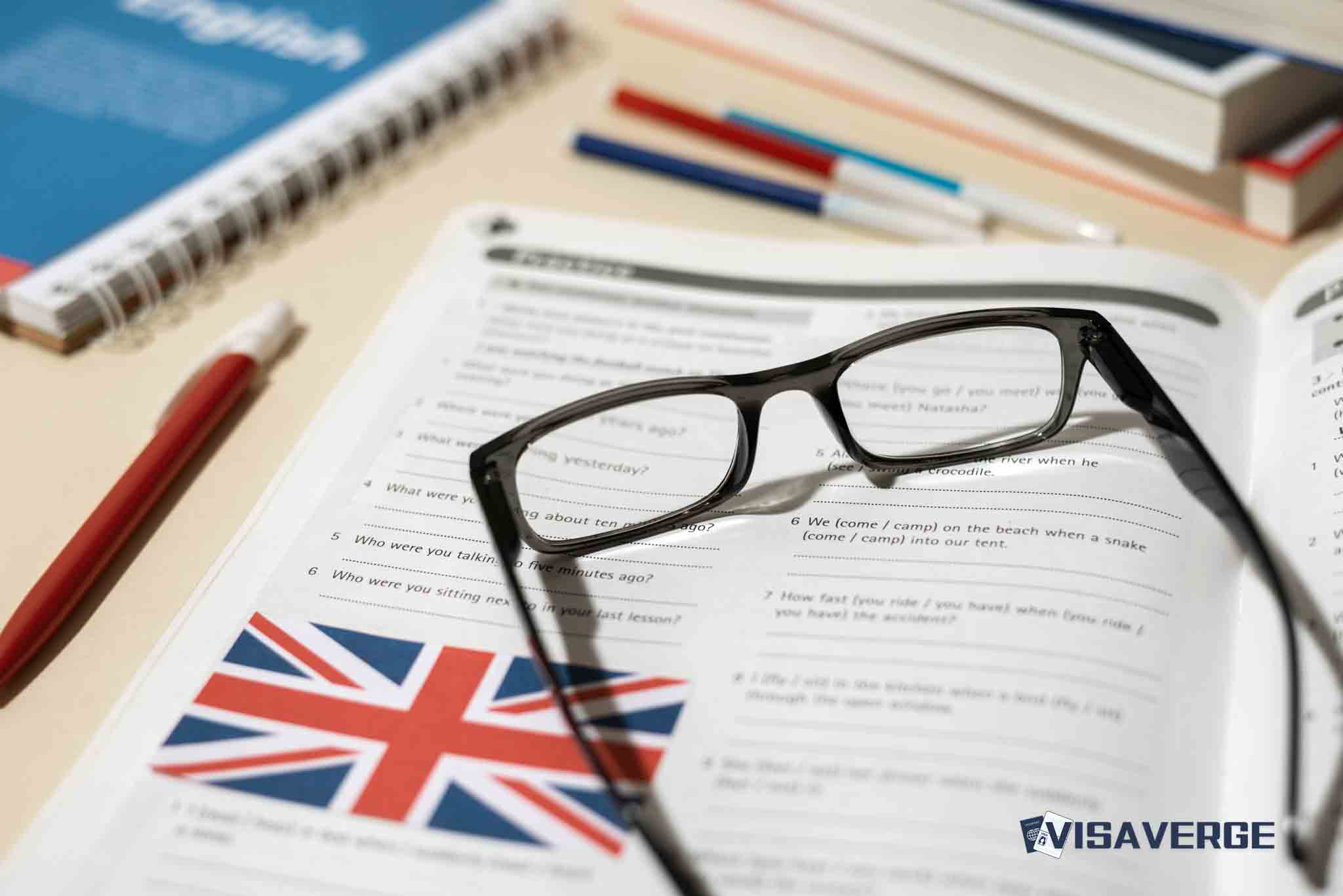Understanding the Post-Brexit UK-EU Future
The unprecedented move of the United Kingdom’s departure from the European Union marked a significant turn in UK-EU relations. As the world watched the profound shifts caused by Brexit, many began to wonder about the long-term impact on the relationship between the UK and EU member states. The question of what lies ahead for UK-EU relations post-Brexit is of utmost relevance, not only to policymakers but also to individuals concerned with travel, commerce, and long-term residency plans on both sides of the English Channel.
The Impact of Brexit on UK-EU Relations
Brexit has undoubtedly caused ripples in the geopolitical landscape, altering how the UK interacts with its European neighbors. One of the most noticeable changes post-Brexit has been the shift in immigration laws and travel conditions. Gone are the days of free movement for UK nationals within the EU and vice versa, replaced by a more regimented system of visas and work permits.
Travelers and expatriates from the UK now need to navigate an array of new regulations when considering living in, working in, or visiting EU countries. Similarly, EU nationals looking to enter the UK must familiarize themselves with revised immigration requirements.
Travel Conditions and Visas
For short-term visits, UK nationals can travel to Schengen Area countries for up to 90 days within any 180-day period without requiring a visa. However, for purposes such as long-term stays, employment, or study, UK citizens must apply for the appropriate visa specific to their destination country.

EU nationals visiting the UK for tourism do not need a visa for stays of up to six months. Nevertheless, those seeking to work or live in the UK must apply through the UK’s points-based immigration system. More information can be found at the UK government’s official visa and immigration page.
Work Visas after Brexit
The UK has introduced a points-based immigration system that affects EU and non-EU citizens equally. To work in the UK, individuals must gain enough points through job offers, skill levels, and salaries to be eligible. In contrast, UK citizens must abide by varying work permit rules set by individual EU states, often grounded in mutual agreements and treaties that continue to develop in the post-Brexit environment.
Navigating the Complexities of Post-Brexit Immigration
Navigating post-Brexit immigration requirements can be overwhelming without proper guidance. Therefore, staying updated on the latest policies is crucial. Whether you are an employer, a worker, or someone who loves to travel between the UK and EU, understanding these new rules is imperative.
The Future Path of UK-EU Cooperation
Although the initial aftermath of Brexit saw considerable uncertainty, the UK and the EU have a shared history and interconnected economies that suggest a cooperative path forward. Both parties have expressed an interest in forging a friendly partnership while respecting each other’s sovereignty.
Continued discussions on areas such as trade agreements, academic cooperations, and professional qualifications reveal a mutual willingness to reduce barriers that may have arisen due to Brexit. Individuals looking to relocate or travel for business should keep an eye on developments in these discussions, as they may simplify international mobility over time.
Final Thoughts on Post-Brexit Relations
While Brexit has certainly altered the landscape of UK-EU relations, it hasn’t severed ties altogether. Many believe that as time progresses, both the EU and the UK will find a balance, crafting an alliance that honors their shared goals and differences.
Immigration rules will continue to evolve, and staying informed is the best way for individuals and businesses to adapt to these changes. Consulting the European Union Immigration Portal and the UK’s government website will provide authoritative advice and the latest information on these matters.
As we tread into this new era, the impact of Brexit on UK-EU relations remains a topic under close scrutiny. Policymakers, citizens, and stakeholders alike are vested in a future that promises stability, prosperity, and a continued partnership between the UK and European nations.
Expert Insights
Did You Know?
- Historical Perspective: Immigration has shaped the United Kingdom for centuries. In the early 19th century, Irish immigration to the UK reached its peak due to factors such as famine, lack of land, and political unrest. This wave of immigration had a lasting impact on the cultural and demographic makeup of the UK.
- Changing Patterns: While discussions around post-Brexit immigration often focus on the UK’s relationship with the EU, it’s important to note that non-EU immigration has been higher than EU immigration to the UK since 2013. This demonstrates the global nature of migration and highlights the significance of countries beyond the EU in shaping the UK’s immigration landscape.
-
Diaspora Influence: The UK has a vibrant diaspora population. According to the Migration Observatory, nearly 9 million British citizens live abroad, making it one of the largest diaspora populations in the world. This diaspora plays a crucial role in fostering cultural exchange, trade, and diplomatic relations between the UK and other countries.
-
Economic Contributions: Immigrants have long been significant contributors to the UK’s economy. Research by University College London found that European immigrants who arrived in the UK between 2000 and 2011 contributed more in taxes than they received in public benefits. Additionally, immigrants have played a vital role in sectors such as healthcare, technology, and hospitality, filling labor market gaps and driving innovation.
-
Language Diversity: The UK is a linguistically diverse nation. While English is the dominant language, over 300 languages are spoken in the country. This linguistic diversity is a testament to the diverse range of immigrant communities that have settled in various regions across the UK throughout history.
-
Cultural Exchange: Immigration has enriched the UK’s cultural landscape. From diverse cuisines and traditions to art forms and music, the influence of immigrants can be seen in various aspects of British culture. This vibrant fusion of cultures has contributed to the UK’s reputation as a multicultural hub.
-
Refugee Resettlement: The UK has a long-standing tradition of resettling refugees. In recent years, the country has stood out as one of the top destinations for resettling refugees through various international programs. This commitment reflects the UK’s humanitarian approach to offering protection and support to people fleeing conflict and persecution.
-
Evolution of Immigration Policies: The UK’s immigration system has undergone significant changes over time. The passage of the Immigration Act 1971 marked a new era in how immigrants were admitted and controlled. This legislation introduced the concept of “right of abode” and established several different types of residence permits.
-
Contributions to Science and Academia: The UK has a rich history of attracting international researchers and scholars. Many renowned scientists, inventors, and Nobel laureates have immigrated to the UK, contributing to groundbreaking discoveries and advancements in various fields.
-
Pathways to Citizenship: Obtaining British citizenship is a significant milestone for immigrants living in the UK. The process typically involves meeting certain residency and language requirements, passing the Life in the UK test, and demonstrating a commitment to the values and responsibilities of British citizenship.
These lesser-known facts about immigration in the UK offer a broader perspective on the historical, cultural, and economic impacts of immigration, shedding light on the diverse and constantly evolving nature of the country’s immigration landscape throughout the years.
Learn today
Glossary or Definitions
- Brexit: The term “Brexit” refers to the withdrawal of the United Kingdom (UK) from the European Union (EU). It represents the decision of the UK to leave the political and economic union between European countries.
- EU: The European Union (EU) is an economic and political union consisting of 27 member countries located primarily in Europe. It aims to promote economic and political cooperation among its members.
-
Post-Brexit: The term “post-Brexit” refers to the period of time after the UK’s departure from the EU. It encompasses the changes, challenges, and new policies that arise as a result of Brexit.
-
Immigration laws: Immigration laws are a set of regulations established by a country to control the entry, stay, and rights of foreign nationals within its borders. These laws determine the conditions and requirements for immigration, including visas, work permits, and residency permits.
-
Free movement: Free movement refers to the ability of individuals from EU member states to live, work, and travel freely within the EU without the need for visas or permits. It was a fundamental principle of EU membership.
-
Visa: A visa is an official document issued by a country that grants permission for a foreign national to enter and stay in that country for a specific period of time and for a specific purpose, such as tourism, work, or study.
-
Work permit: A work permit is an official authorization granted by a country that allows a foreign national to work legally within its territory for a specific period of time. It is often required for individuals who wish to work in a country other than their own.
-
Short-term visits: Short-term visits refer to temporary stays in a foreign country for a limited period of time, usually for tourism or business purposes. The duration of short-term visits may vary depending on the country’s immigration policies.
-
Schengen Area: The Schengen Area is a zone comprised of 26 European countries that have abolished internal border controls, allowing for the free movement of people within this area. It includes countries such as France, Germany, Italy, and Spain.
-
Points-based immigration system: A points-based immigration system is a system used by some countries, including the UK, to evaluate and select immigrants based on specific criteria, such as education, skills, work experience, and language proficiency. Applicants are assigned points, and those meeting the required points threshold are eligible for immigration.
-
Sovereignty: Sovereignty refers to the supreme authority of a country to govern itself independently without interference from external powers. In the context of Brexit, respecting each other’s sovereignty means that the UK and the EU acknowledge and respect each other’s decision-making and legal frameworks.
-
Trade agreements: Trade agreements are formal agreements between countries that regulate and promote trade between them. These agreements typically aim to reduce barriers to trade, including tariffs, import and export restrictions, and other trade-related policies.
-
Academic cooperation: Academic cooperation refers to collaborations and partnerships between educational institutions, researchers, and scholars from different countries. It encompasses joint research projects, student exchanges, and mutual recognition of academic qualifications.
-
Professional qualifications: Professional qualifications refer to the specific certifications, licenses, or educational requirements that individuals need to acquire in order to work in certain professions or occupations. These qualifications may vary between countries and are often regulated by professional bodies.
-
European Union Immigration Portal: The European Union Immigration Portal is an official website provided by the EU that offers information, resources, and assistance regarding immigration policies, visa requirements, and living and working in the EU member states.
-
UK government website: The UK government website is the official website of the UK government that provides information, services, and resources related to various topics, including visas, immigration, and government policies.
-
Stability: Stability refers to a state of being steady, consistent, and secure. In the context of UK-EU relations, stability implies a harmonious and predictable environment that promotes economic cooperation, societal well-being, and political security.
-
Prosperity: Prosperity refers to a state of economic success, growth, and well-being. It signifies the ability of individuals, businesses, and societies to thrive and achieve financial stability and advancement.
-
Partnership: Partnership refers to a cooperative and mutually beneficial relationship between two or more entities. In the context of UK-EU relations, a partnership implies collaboration, shared goals, and working together for common interests.
So, there you have it! The world watched in awe as Brexit shook up the UK-EU relationship, and now we’re left wondering what the future holds. But fear not, my friend! If you want to dive deeper into these post-Brexit immigration complexities, head over to visaverge.com. Trust me, it’s like having a tech-savvy friend who’s got all the answers!
FAQ’s to know:
FAQ 1: What are the travel conditions and visa requirements for UK nationals visiting EU countries after Brexit?
After Brexit, UK nationals visiting EU countries can travel for up to 90 days within any 180-day period without requiring a visa. This applies to short-term visits or tourism purposes. However, for long-term stays, employment, or study in EU countries, UK citizens must apply for the appropriate visa specific to their destination country. It is important for UK nationals to familiarize themselves with the updated regulations and requirements for each individual EU country they plan to visit.
FAQ 2: Do EU nationals need a visa to visit the UK after Brexit?
EU nationals visiting the UK for tourism purposes do not need a visa for stays of up to six months. However, those seeking to work or live in the UK must apply through the UK’s points-based immigration system. The points-based system considers factors such as job offers, skill levels, and salaries to determine eligibility. EU nationals should consult the UK’s official visa and immigration page for detailed information on the requirements and process.
FAQ 3: How has Brexit impacted work visas for UK citizens and EU nationals?
Brexit has led to the introduction of a points-based immigration system in the UK, which affects both EU and non-EU citizens equally. To work in the UK, individuals must accumulate enough points through factors like job offers, skill levels, and salaries to meet the eligibility criteria. On the other hand, UK citizens must abide by varying work permit rules set by individual EU states, which are often based on evolving mutual agreements and treaties. It is essential for both UK citizens and EU nationals to stay informed about the specific work visa requirements set by each country to navigate the complexities of post-Brexit immigration.
What did you learn? Answer below to know:
- True or False: After Brexit, UK nationals can travel visa-free to Schengen Area countries for an unlimited duration. True/False
- What is the main determinant of eligibility for a work visa in the UK under the points-based immigration system?
a) Job offers
b) Skill levels
c) Salaries
d) All of the above
- Where can individuals find authoritative advice and the latest information on post-Brexit immigration rules for the UK and EU?
a) European Union Immigration Portal
b) UK government website
c) Both a) and b)
d) None of the above







